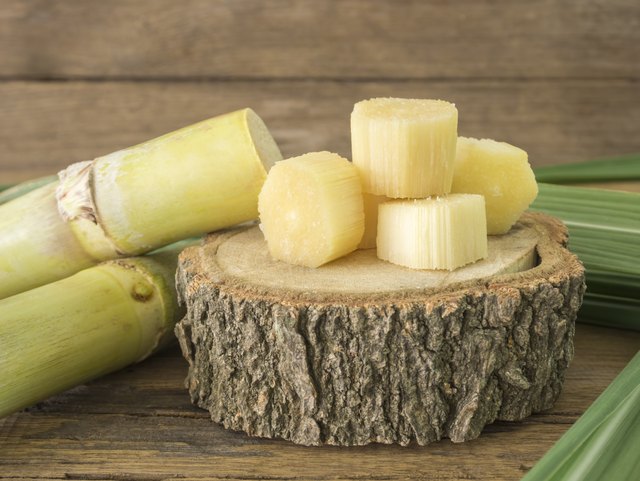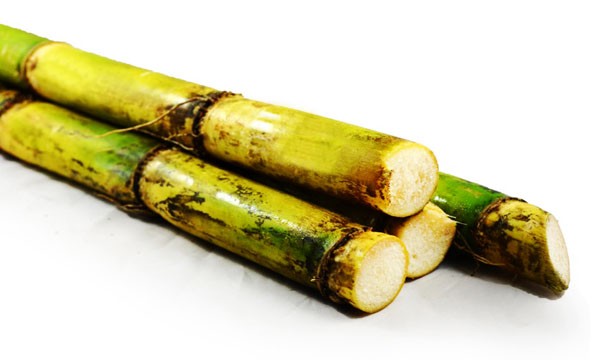Why Cane Sugar Processing Chemicals Are Vital for Modern Sugar Refining
The role of walking stick sugar handling chemicals in modern sugar refining can not be overemphasized, as they are essential to boosting both the performance of extraction and the overall quality of the last item. Agents such as phosphoric acid and details flocculants are utilized to get rid of contaminations, resulting in sugar that not only fulfills consumer assumptions yet also complies with sector standards. The effects of these chemicals extend past quality, touching upon market dynamics and environmental factors to consider. sugar and cane. This increases crucial inquiries concerning the sustainability of such techniques and their impact on the future of sugar production.
Function of Handling Chemicals
The effectiveness of walking cane sugar handling hinges significantly on the calculated application of processing chemicals. These chemicals play an essential function in improving the performance and high quality of sugar removal and refining. From the preliminary stages of juice extraction to the final filtration actions, processing chemicals help with different essential procedures.
In the extraction stage, chemicals such as phosphoric acid and calcium hydroxide are utilized to enhance the information process, aiding to eliminate impurities and put on hold solids from the walking cane juice. This not only improves the return however also guarantees the clarity of the final product. Additionally, representatives like flocculants aid in the quick settling of impurities, consequently enhancing the general process.
Activated carbon and ion exchange materials offer to eliminate shade and smell, guaranteeing that the polished sugar fulfills consumer top quality standards. Therefore, the careful selection and application of these chemicals are essential for accomplishing optimal results in cane sugar handling.
Key Sorts Of Chemicals
Walking stick sugar handling counts on a range of crucial chemicals that facilitate each stage of production. These chemicals play necessary roles in clearing up, whitening, and cleansing the sugar removed from walking cane.
One primary category of chemicals includes flocculants, such as polyacrylamide, which aid in the clarification process by promoting the aggregation and settling of pollutants. Furthermore, calcium hydroxide is commonly utilized to counteract acidity and assist in the elimination of non-sugar elements.
Bleaching representatives, such as triggered carbon and sulfur dioxide, are used to decolorize the syrup, causing a more clear last item. These chemicals assist eliminate color compounds that may affect the sugar's appearance and bankability.
Additionally, phosphoric acid functions as a pH regulator during the handling stages, ensuring ideal conditions for the enzymatic tasks involved in sugar removal and purification.
Other crucial representatives include edta (ethylenediaminetetraacetic acid), which chelates steel ions that might catalyze undesirable responses, and sodium hydroxide, which assists in pH control throughout the refining procedure. Collectively, these chemicals improve performance and make sure a high-grade walking stick sugar item.
Benefits for Sugar Quality
Usually forgotten, using specific handling chemicals substantially enhances the general quality of walking stick sugar. These chemicals play a pivotal function in refining procedures, making certain that the final product fulfills rigid sector requirements for pureness and taste.

In addition, refining chemicals aid in attaining a regular granulation and appearance, which are essential for customer approval. By regulating the formation procedure, these chemicals make sure that the sugar crystals develop uniformly, resulting in a more appealing item that liquifies well in different applications.
Moreover, the usage of these chemicals can enhance the shelf life of cane sugar by minimizing moisture absorption and microbial development. On the whole, the calculated application of processing chemicals is important for delivering high-quality walking cane sugar that satisfies consumer assumptions and industry needs.
Ecological Impact Factors To Consider

In addition, the energy-intensive nature of sugar refining, compounded by chemical use, commonly results in increased carbon emissions. This contributes to climate change and increases worries pertaining to the sustainability of present refining methods. In addition, the sourcing of these chemicals may include methods that endanger biodiversity, such as monoculture farming, which lowers the strength of farming ecological communities.

To minimize these impacts, sugar refiners are progressively look at here now checking out sustainable choices and taking on ideal methods that lessen chemical usage. Implementing strenuous ecological management systems can help ensure that the refining procedure lines up with environmental criteria and advertises biodiversity. Inevitably, a balanced method that focuses on both sugar high quality and environmental stewardship is vital for the long-lasting viability of the sugar sector.
Future Patterns in Refining
As the sugar industry faces the ecological challenges related to standard refining techniques, cutting-edge techniques are arising to enhance both performance and sustainability. One considerable fad is the adoption of green chemistry concepts, which prioritize making use of non-toxic, biodegradable handling chemicals. This shift not just decreases ecological influence yet also addresses customer demand for cleaner manufacturing techniques.
One more promising advancement is the implementation of sophisticated filtration technologies, such as membrane splitting up and adsorption procedures. These strategies enhance the clearness and high quality of the sugar while reducing the quantity of wastewater created during refining. Furthermore, the integration of digital modern technologies, including IoT and AI, is transforming functional performance by making it possible for real-time tracking and anticipating upkeep, thus decreasing resource waste.
Moreover, using by-products from sugar refining, such as bagasse and molasses, is getting grip. These materials can be transformed right into biofuels or value-added products, adding to a circular economic climate within the industry. Collectively, these patterns indicate a change in the direction of even more sustainable methods that go to my blog not just boost functional performance but also line up with worldwide sustainability objectives, making certain the future viability of sugar refining.
Final Thought
Walking cane sugar handling chemicals are vital in contemporary sugar refining, substantially boosting the effectiveness and top quality of sugar removal. The strategic use of these chemicals not just boosts the pureness and flavor of the end product yet additionally makes certain regular formation and structure. As the market progressively focuses on sustainability, the fostering of environmentally-friendly processing agents is likely to form future fads in refining, ultimately resulting in higher quality items and expanded rack life for customers.

Inevitably, a balanced method that focuses on both sugar quality and environmental stewardship is crucial for the long-term practicality of the sugar market.
Cane sugar processing chemicals are necessary in modern-day sugar refining, significantly improving the effectiveness and high quality of sugar removal.
 Joseph Mazzello Then & Now!
Joseph Mazzello Then & Now! Alexa Vega Then & Now!
Alexa Vega Then & Now! Robbie Rist Then & Now!
Robbie Rist Then & Now! Barbara Eden Then & Now!
Barbara Eden Then & Now! Naomi Grossman Then & Now!
Naomi Grossman Then & Now!